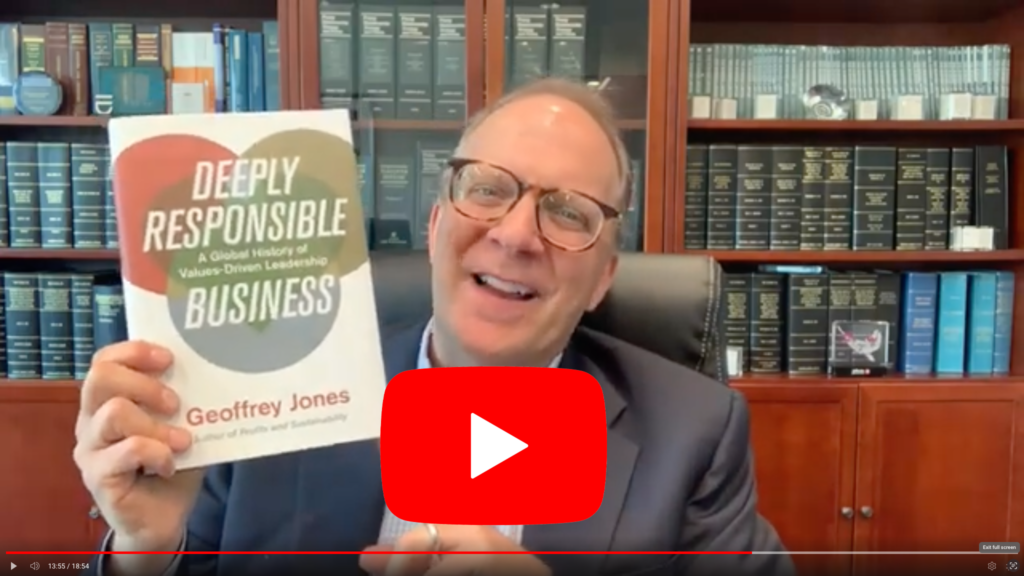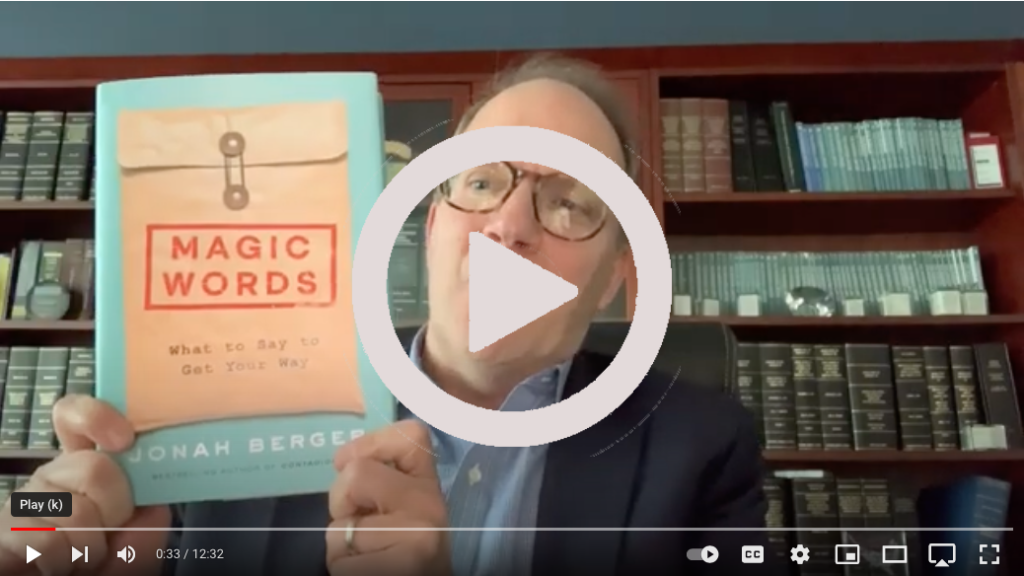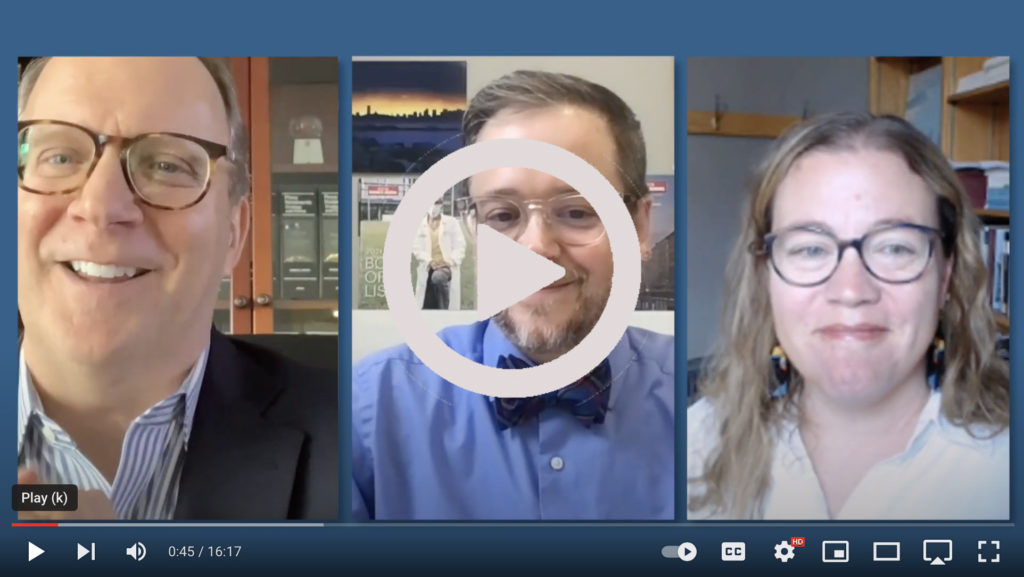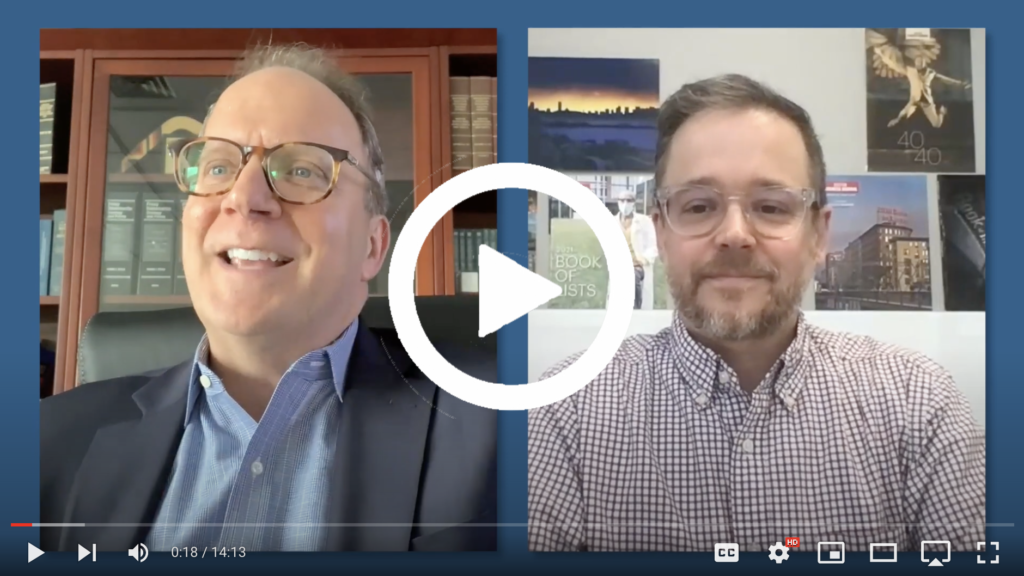This year has been a consequential one, and as we close it out, you may be looking for that perfect gift for a colleague, friend, or family member. We all can benefit by taking the time to read, learn and listen more deeply, now more than ever. This year, I’ve read more great books that will appeal to the most entrepreneurial minds on your list. Check them out:
The Everything War. Wall St Journal reporter Dana Mattioli chronicles Amazon’s steady rise from an unprofitable internet bookseller into a sprawling, monopolistic mega-conglomerate with a vice grip on industries ranging from retail, groceries, logistics, healthcare, and cloud services that track our every online move. You’ll rethink your Prime account after reading this one.
Making It In America. Boston-area journalist Rachel Slade’s page-turning chronicle of the lives of Portland-area entrepreneurs Ben and Whitney Waxman, and the launch of Maine-based apparel manufacturer American Roots. Slade details the demise of manufacturing in Maine and the U.S. over the last half century as well as the Waxmans’ grit and determination to create jobs that offer good pay, decent benefits and meaningful connection to community. This is why “Made in America” should matter to us all.
Actual Malice: Civil Rights And The Freedom Of The Press In New York Times v. Sullivan. Law professor Samantha Barbas tracks the events behind the historic case and details why this key decision supporting the First Amendment has been foundational for reporters covering businesses, governments, and the people who run them.
Job Moves. Each year, an estimated one billion people change jobs. Professors Ethan Bernstein, Michael Horn, and Bob Moesta challenge all of us to look beyond title, company, and job descriptions to ask “what can this job really do for me.” This is easily the most valuable career-oriented book I’ve read in years.
Personalized: Customer Strategy in the age of AI. HBS’s Dave Edelman and BCG’s Mark Abraham argue that today’s customers demand increasingly personalized experiences, and the most successful companies will use AI to deliver them at scale. This book can show you how.
The Power of Instinct. Using behavioral science, CMO strategist Leslie Zane explains why marketing is less about persuasion and AI and more about telling new stories to connect visceral, unconscious, positive biases built up over time.
No Right to an Honest Living. 2024 Pulitzer Prize winner Jacqueline Jones meticulously chronicles the lives of Civil War era Black Bostonians, who became ministers, doctors, lawyers, house servants, or most often, day-to-day entrepreneurs out of sheer necessity. This is an inspiring and infuriating history and a must-read.
The Extinction of Experience: Being Human in a Disembodied World. Journalist Christine Rosen lays out how key human experiences, including face-to-face conversations, exploring new places and food, authentic emotion, and even boredom and the potential inspiration it inspires, are now at risk in a world awash in Tik Tok and Instagram. This is a profoundly engaging book aimed at leaders, thinkers, and parents.
The Age of Grievance. So, we had another election this year and many business and political leaders are discerning how to find common ground going forward. In this smart, entertaining book, New York Times columnist Frank Bruni details how a willingness to embrace and participate in a seductive “enrage to engage” social media strategy is turning people on instead of toward each other. Can we use legitimate grievance as an agent for change? Bruni has some ideas.
Is Your Work Worth It? Professors Jennifer Tosti-Kharas and Christopher Wong Michaelson have written a deeply penetrating book about work, purpose, and living with more intentionality.
The Treasure You Seek. HBS Professor Archie Jones, Jr. urges leaders at every level to assess their own “capital” practically to embrace their essential “why.”
This year, give the gift of insight and knowledge and support your local independent bookstore. We’ll all be better off if you do!
Read in the Boston Business Journal
Larry Gennari is a business lawyer and chief curator of Authors & Innovators, an annual business book and ideas festival. Watch recent interviews with authors here. Gennari also teaches Project Entrepreneur, a business fundamentals bootcamp for returning citizens, at BC Law School.








